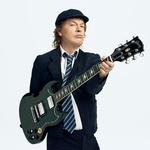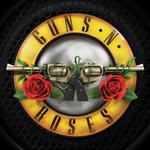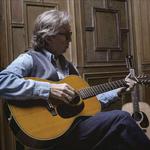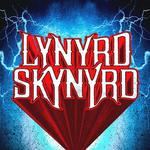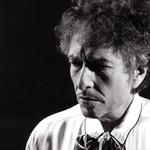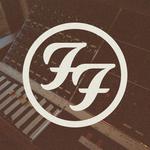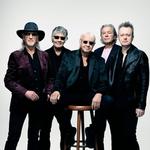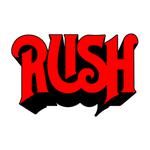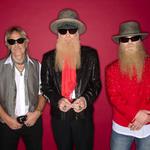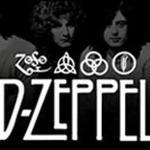
Led Zeppelin
Led Zeppelin was originally formed in 1968 by guitarist Jimmy Page under the name "The New Yardbirds," based on Page's previous band, The Yardbirds. While The New Yardbirds arose at first simply to fulfill some performance commitments booked in Scandinavia before the original band's break-up, Page attempted to create a rock-supergroup out of the new band, which would have been composed of the Yardbirds' own Page and Jeff Beck, The Who's Keith Moon and John Entwistle (who were considering leaving their band), and possibly Steve Winwood or Steve Marriott.
After Page's attempt at forming a supergroup failed, Page filled the band with vocalist Robert Plant, drummer John Bonham and long-time friend and fellow London recording session player John Paul Jones. Page's first choice as singer, Terry Reid, declined the opportunity but selflessly recommended Plant, who accepted and then brought in his old friend Bonham from the defunct Band of Joy.
After some concerts with this new line-up billed variously as the New Yardbirds, or sometimes simply The Yardbirds, the band's name was changed to Led Zeppelin, after a comment was made by The Who's drummer Keith Moon while the New Yardbirds supergroup was still a possibility. Moon (although some attribute the comment to the Who's bassist John Entwistle) was quoted saying that the band would go down faster than a "lead zeppelin". The group adopted the name, deliberately misspelling the first part to prevent fans from pronouncing it as "leed."
Shortly after their first tour, the group's eponymous first album was released on January 12, 1969. Its blend of blues and rock influences with distorted amplification made it one of the pivotal records in the evolution of heavy metal music. Although several of Zeppelin's earliest songs were based on or were cover versions of blues standards, others such as "Communication Breakdown" had a unique and distinctively heavy sound. Led Zeppelin also featured delicate acoustic guitar on "Black Mountain Side" in which you can hear the influence of Davy Graham, and a combination of acoustic and electric approaches on the reworked folk song "Babe I'm Gonna Leave You." The immediate success of the first album kick-started the band's career, especially in the United States, where they would frequently tour.
The second record, simply titled Led Zeppelin II, followed in similar style later that year: the album begins with the bludgeoning riff of "Whole Lotta Love," which, driven by the rhythm section of Bonham on drums and Jones on bass, defined their sound at the time. Led Zeppelin II—often referred to by fans as the "Brown Bomber"—was an even greater success for the group, reaching the Number 1 chart position in both the United States and the United Kingdom.
Jimmy Page and Robert Plant were blues fanatics; their first album included the Willie Dixon song "You Shook Me," and their later hit "Whole Lotta Love" was lyrically very similar to an earlier Dixon song. (The band were subsequently accused of using his lyrics without crediting Dixon, and it was not until Chess Records brought suit 15 years later, that proper credit—and a monetary settlement—was given.)
Page was once quoted in an interview with the hypothesis: "I've often thought that in the way the Stones tried to be the sons of Chuck Berry, we tried to be the sons of Howlin' Wolf" (a version of whose song "Killing Floor" featured prominently in Zeppelin's early live performances). The band also loved American rock and roll: the exuberant styles of Fats Domino and Little Richard were inspirations, and Led Zeppelin would perform rockabilly songs originally made famous by Elvis Presley and Eddie Cochran. Onstage, Led Zeppelin concerts could last more than three hours; expanded, improvised live versions of their song repertoire often incorporated tight workouts of James Brown, Stax, and Motown-influenced soul music and funk (favorites of bassist Jones and drummer Bonham).
For the writing of the music on their third album, Led Zeppelin III, the band retired to Bron-Yr-Aur, a remote cottage in Wales. This would result in a more acoustic sound (and a song "Bron-Yr-Aur Stomp", misspelled as "Bron-Y-Aur Stomp" on the album cover) strongly influenced by Celtic and folk music, and it also revealed a different side of guitarist Page's prodigious talent. Led Zeppelin III also ushered in an era of unique album jackets, this one featuring a wheel that displayed various images through cutouts in the main jacket sleeve when rotated. In November of 1970, Led Zeppelin's record label, Atlantic Records, released "Immigrant Song" as a single against the band's wishes (Atlantic had earlier released an edited version of "Whole Lotta Love" which cut the 5:34 song to 3:10). It included their only b-side, "Hey Hey What Can I Do". Even though the band saw their albums as indivisible, whole listening experiences — and their manager, Peter Grant, maintained an aggressive pro-album stance — nine other singles were released without their consent. The group also resisted television appearances, which would have reduced their ability to control their presentation and sound quality. Lack of Zeppelin TV exposure also enforced the band's preference that their fans hear and see them in person.
Their fourth album, Led Zeppelin IV featured the world famous "Stairway to Heaven", a masterpiece which every year tops the various Top100 radio lists. On stage Jimmy Page performed Stairway to Heaven on a custom built double neck electric Gibson guitar, the top neck a twelve string version.
Over 25 years after disbanding in response to drummer John Bonham's tragic death in 1980, Led Zeppelin continue to be held in high regard for their artistic achievements, commercial success and influence. To date, the group is reported to have sold more than 300 million albums worldwide, including 109.5 million sales in the United States.
Some regard Jimmy Page as the most talented rock/blues guitarist of all time. John Bonham gave a new sound to rock and roll, people were struck with amazement by his complex drum beats and his expansive drum solos. After his untimely death, the band broke up. Since then, Page, Plant, and Jones have only played together on rare occasions. Page and Plant did get back together to record No Quarter: Jimmy Page and Robert Plant Unledded as part of the MTV Unplugged series in 1994, which was accompanied by a worldwide tour, and again in 1998 for the studio album Walking Into Clarksdale. John Paul Jones also has performed since the break up - at the Bonnaroo music festival in Manchester, Tennessee. He was part of a "SuperJam" featuring himself on bass, Ben Harper on guitar, and Ahmir "?uestlove" Thompson on the drums. He also played as a guest during the sets of various other artists throughout the weekend.
Most recently Led Zeppelin have reformed (with Jason Bonham filling in on drums) for a one-off reunion concert in memory of Atlantic Records co-founder and executive Ahmet Ertegün. After a postponement due to Jimmy Page fracturing one of his fingers, the group performed on 10 December 2007 at the O2 Arena, London. The concert was filmed for a potential DVD release.
Page and Jones also appeared with Foo Fighters at the second of their two performances at Wembley Stadium, London (7th June 2008), where they performed 'Rock And Roll' (Grohl on drums, Hawkins on vocals) and 'Ramble On' (Grohl on vocals, Hawkins on drums). Foo Fighters frontman Dave Grohl claimed it to be "the greatest night of my entire life."
Jimmy Page has hinted that the group may start work on new material, and that a world tour may be in the works.
On tour
No
Followers
3,626,684
Similar Artists On Tour
About Led Zeppelin
Led Zeppelin was originally formed in 1968 by guitarist Jimmy Page under the name "The New Yardbirds," based on Page's previous band, The Yardbirds. While The New Yardbirds arose at first simply to fulfill some performance commitments booked in Scandinavia before the original band's break-up, Page attempted to create a rock-supergroup out of the new band, which would have been composed of the Yardbirds' own Page and Jeff Beck, The Who's Keith Moon and John Entwistle (who were considering leaving their band), and possibly Steve Winwood or Steve Marriott.
After Page's attempt at forming a supergroup failed, Page filled the band with vocalist Robert Plant, drummer John Bonham and long-time friend and fellow London recording session player John Paul Jones. Page's first choice as singer, Terry Reid, declined the opportunity but selflessly recommended Plant, who accepted and then brought in his old friend Bonham from the defunct Band of Joy.
After some concerts with this new line-up billed variously as the New Yardbirds, or sometimes simply The Yardbirds, the band's name was changed to Led Zeppelin, after a comment was made by The Who's drummer Keith Moon while the New Yardbirds supergroup was still a possibility. Moon (although some attribute the comment to the Who's bassist John Entwistle) was quoted saying that the band would go down faster than a "lead zeppelin". The group adopted the name, deliberately misspelling the first part to prevent fans from pronouncing it as "leed."
Shortly after their first tour, the group's eponymous first album was released on January 12, 1969. Its blend of blues and rock influences with distorted amplification made it one of the pivotal records in the evolution of heavy metal music. Although several of Zeppelin's earliest songs were based on or were cover versions of blues standards, others such as "Communication Breakdown" had a unique and distinctively heavy sound. Led Zeppelin also featured delicate acoustic guitar on "Black Mountain Side" in which you can hear the influence of Davy Graham, and a combination of acoustic and electric approaches on the reworked folk song "Babe I'm Gonna Leave You." The immediate success of the first album kick-started the band's career, especially in the United States, where they would frequently tour.
The second record, simply titled Led Zeppelin II, followed in similar style later that year: the album begins with the bludgeoning riff of "Whole Lotta Love," which, driven by the rhythm section of Bonham on drums and Jones on bass, defined their sound at the time. Led Zeppelin II—often referred to by fans as the "Brown Bomber"—was an even greater success for the group, reaching the Number 1 chart position in both the United States and the United Kingdom.
Jimmy Page and Robert Plant were blues fanatics; their first album included the Willie Dixon song "You Shook Me," and their later hit "Whole Lotta Love" was lyrically very similar to an earlier Dixon song. (The band were subsequently accused of using his lyrics without crediting Dixon, and it was not until Chess Records brought suit 15 years later, that proper credit—and a monetary settlement—was given.)
Page was once quoted in an interview with the hypothesis: "I've often thought that in the way the Stones tried to be the sons of Chuck Berry, we tried to be the sons of Howlin' Wolf" (a version of whose song "Killing Floor" featured prominently in Zeppelin's early live performances). The band also loved American rock and roll: the exuberant styles of Fats Domino and Little Richard were inspirations, and Led Zeppelin would perform rockabilly songs originally made famous by Elvis Presley and Eddie Cochran. Onstage, Led Zeppelin concerts could last more than three hours; expanded, improvised live versions of their song repertoire often incorporated tight workouts of James Brown, Stax, and Motown-influenced soul music and funk (favorites of bassist Jones and drummer Bonham).
For the writing of the music on their third album, Led Zeppelin III, the band retired to Bron-Yr-Aur, a remote cottage in Wales. This would result in a more acoustic sound (and a song "Bron-Yr-Aur Stomp", misspelled as "Bron-Y-Aur Stomp" on the album cover) strongly influenced by Celtic and folk music, and it also revealed a different side of guitarist Page's prodigious talent. Led Zeppelin III also ushered in an era of unique album jackets, this one featuring a wheel that displayed various images through cutouts in the main jacket sleeve when rotated. In November of 1970, Led Zeppelin's record label, Atlantic Records, released "Immigrant Song" as a single against the band's wishes (Atlantic had earlier released an edited version of "Whole Lotta Love" which cut the 5:34 song to 3:10). It included their only b-side, "Hey Hey What Can I Do". Even though the band saw their albums as indivisible, whole listening experiences — and their manager, Peter Grant, maintained an aggressive pro-album stance — nine other singles were released without their consent. The group also resisted television appearances, which would have reduced their ability to control their presentation and sound quality. Lack of Zeppelin TV exposure also enforced the band's preference that their fans hear and see them in person.
Their fourth album, Led Zeppelin IV featured the world famous "Stairway to Heaven", a masterpiece which every year tops the various Top100 radio lists. On stage Jimmy Page performed Stairway to Heaven on a custom built double neck electric Gibson guitar, the top neck a twelve string version.
Over 25 years after disbanding in response to drummer John Bonham's tragic death in 1980, Led Zeppelin continue to be held in high regard for their artistic achievements, commercial success and influence. To date, the group is reported to have sold more than 300 million albums worldwide, including 109.5 million sales in the United States.
Some regard Jimmy Page as the most talented rock/blues guitarist of all time. John Bonham gave a new sound to rock and roll, people were struck with amazement by his complex drum beats and his expansive drum solos. After his untimely death, the band broke up. Since then, Page, Plant, and Jones have only played together on rare occasions. Page and Plant did get back together to record No Quarter: Jimmy Page and Robert Plant Unledded as part of the MTV Unplugged series in 1994, which was accompanied by a worldwide tour, and again in 1998 for the studio album Walking Into Clarksdale. John Paul Jones also has performed since the break up - at the Bonnaroo music festival in Manchester, Tennessee. He was part of a "SuperJam" featuring himself on bass, Ben Harper on guitar, and Ahmir "?uestlove" Thompson on the drums. He also played as a guest during the sets of various other artists throughout the weekend.
Most recently Led Zeppelin have reformed (with Jason Bonham filling in on drums) for a one-off reunion concert in memory of Atlantic Records co-founder and executive Ahmet Ertegün. After a postponement due to Jimmy Page fracturing one of his fingers, the group performed on 10 December 2007 at the O2 Arena, London. The concert was filmed for a potential DVD release.
Page and Jones also appeared with Foo Fighters at the second of their two performances at Wembley Stadium, London (7th June 2008), where they performed 'Rock And Roll' (Grohl on drums, Hawkins on vocals) and 'Ramble On' (Grohl on vocals, Hawkins on drums). Foo Fighters frontman Dave Grohl claimed it to be "the greatest night of my entire life."
Jimmy Page has hinted that the group may start work on new material, and that a world tour may be in the works.
Follow on Bandsintown
Frequently Asked Questions About Led Zeppelin
Concerts & Tour Date Information
Is Led Zeppelin on tour?
No, Led Zeppelin is not currently on tour and doesn’t have any tour dates scheduled for
2026-2027. Browse related artists and follow Led Zeppelin for the latest updates on
upcoming concert tours.
